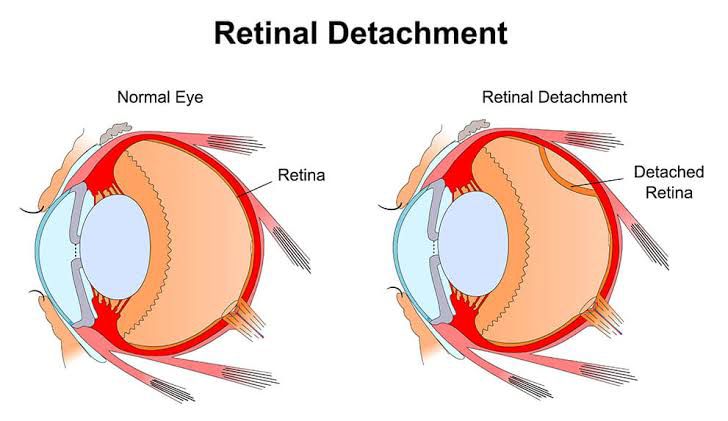The retina, a delicate tissue at the back of the eye near the optic nerve, converts light into neural signals for vision. Retinal diseases can lead to severe visual issues. Common symptoms include floating specks, blurred vision, side vision defects, or vision loss. Contact an eye clinic promptly if you experience these symptoms. Our clinic provides treatment for various retinal conditions.
Diabetic Retinopathy
Diabetes can damage the tiny blood vessels in your eye, causing leakage and swelling in the retina, which can blur or distort vision. New, abnormal blood vessels may also form and bleed, worsening vision.
Age-Related Macular Degeneration
AMD affects the center of the retina, leading to blurred central vision or a blind spot. It has two types: dry, which can progress to wet AMD, involving new blood vessels that leak fluid or blood.
Retinal Venous Occlusions
A blocked retinal vein can cause blurry vision or sudden, permanent vision loss in the affected eye.
Retinal Degeneration
This condition leads to progressive loss of vision and blindness due to the death of retinal cells or surrounding tissue.
Macular Hole
A small defect in the retina’s center, possibly due to abnormal traction or injury, can cause vision problems.
Epiretinal Membrane
A thin, scar-like membrane on the retina can distort vision, making objects appear blurred or crooked.
Vitreomacular Traction
VMT occurs when the vitreous gel in the eye pulls on the macula, causing vision problems due to incomplete detachment.
Vitreous Haemorrhage
Blood in the vitreous gel can cause sudden vision loss, spots, or floaters. Treatment may include vitrectomy surgery to remove the blood and address the cause.

